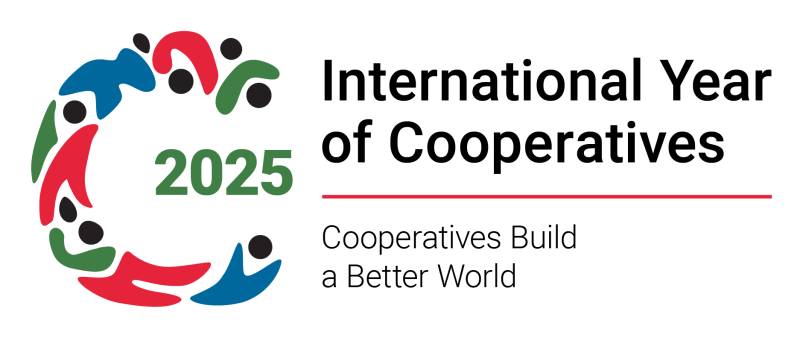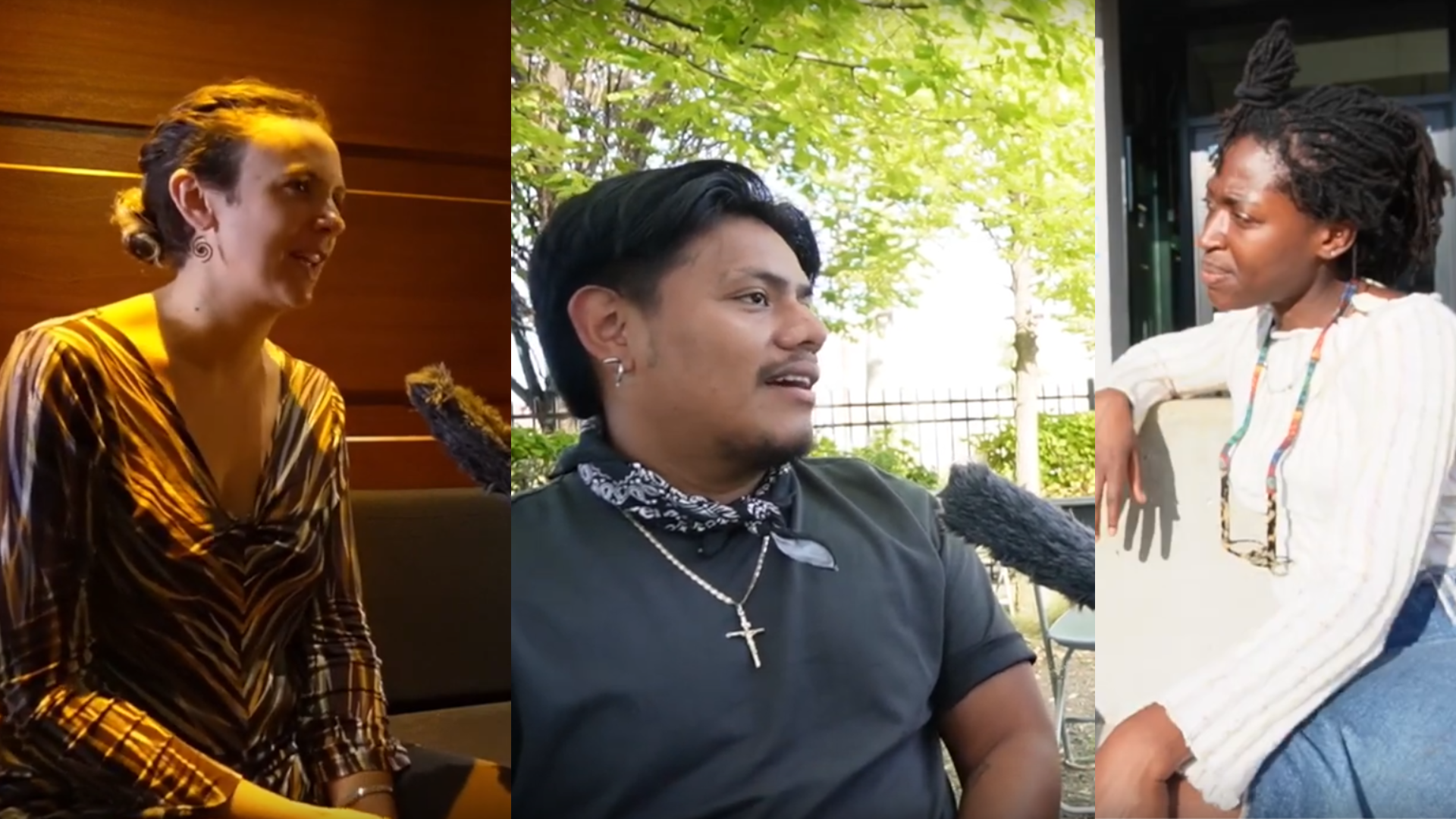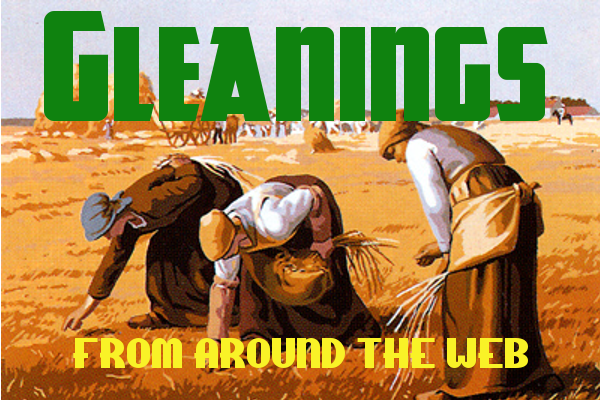This week, Kenzie Love of the Canadian Worker Co-op Federation writes about why that organization sees the recently declared second "International Year of Cooperatives" in 2025 as an important chance for the co-op movement to come together to better practice cooperation among cooperative organizations.
Then we've got three more interviews with attendees of the 2024 US Worker Co-op Conference: Emma, of Wholehearted Bookkeeping and Oasis Solidarity Collective; Carlos of Sunset Scholars; and Dalaeja of Breadfruit Cooperative.
Unfortunately, we're still struggling to get Google to deliver our emails. If any readers have expertise in this area, please drop us a line at editors[at]geo.coop.
Co-operatives Are At a Pivotal Point
by Kenzie Love
Although the government’s actions were a blow to the co-op movement, CWCF and other organizations have continued to lobby for co-op friendly policies and achieved some recent successes, such as a commitment to give worker co-op conversions the same status under the Income Tax Act as Employee Ownership Trusts. Corcoran believes, however, that the co-op movement is at a pivotal moment both at home and abroad. She points to the insularity that has emerged in some sectors as a growing threat, as well as the significant number of demutualizations.
“I feel that there’s been a significant lack of cooperation in the co-operative movement,” she says. “It’s disappointing, and it’s sad.”
Emma, Carlos, and Dalaeja
Three Interviews from the 2024 US Worker Co-op Conference
by GEO Collective
Chris interviews worker-owner Emma Yorra of Wholehearted Bookkeeping worker co-op and Oasis Solidarity Collective...Carlos of Sunset Scholars worker co-op...[and] Dalaeja Foreman of Breadfruit worker co-op at the September 2024 USFWC Worker Co-op Conference in Chicago, Illinois.
A Co-op Prayer from Botswana
Oodi Women's Weaver Co-operative — Lord, save our cooperative, and keep it safe from the attention of:
- the academics who wish to pull it apart to find out how it works
- the professionals who seem to believe that nothing can be achieved by ordinary women and men without their help
- the advisers who never tire of finding new problems that they can pretend to be finding solutions for them...
Ella Baker, Septima Clark, and The Highlander Folk School
Lost Prophets — This episode takes us into the long history of the Civil Rights Movement as we talk about the methods and legacies of two long-distance runners, Ella Baker (1903-1986) and Septima Clark (1898-1987). Baker was a legendary organizer who espoused a group-centered form of leadership and insisted that deep change required the long-haul “spadework” of community organizing. Clark, known as “the teacher of the Civil Right movement,” built a network of Southern Citizenship Schools, which were crucial to the emergence of Black voting power in the early 1960s...
Mapping the Solidarity Economy
CounterPunch — In July 2024, the Council Office of Financial Analysis (COFA) reported that Chicago, Illinois, was witnessing a struggling job market, a decrease in multifamily housing starts, and a rise in single-family home prices...Fortunately, there are numerous solidarity enterprises and mutual aid groups in Chicago that can help ease the brunt of these conditions. For instance, the community and neighborhood development organization Reason to Give offers education, school supplies, clothing, and toys to children and families in need. The nonprofit HighSight provides low-income high school students with scholarships and academic support, and the Sol House Cooperative’s mission is to “provide affordable homeownership opportunities on Chicagoʼs Northwest Side to socially conscious individuals who want to share in decision-making and property management responsibilities within a cooperative enterprise.”...
Italian precarious workers between self-organization and self-advocacy
Academia.edu — [O]ver the last ten years, Italy has seen the emergence of a complex social movement to counter precariousness. This movement at first concentrated its efforts in the rewriting of the symbolic vocabulary and imagination at work, in an attempt to consolidate the precarious as a collective subjectivity beyond its traditional representations. In recent years, however , this process of “self-representation” in terms of a collective narrative is matched by a process of “self-advocacy”: an effective self-organization of temporary workers to handle the conflict in the workplace. In a scenario of no confidence in political parties and trade unions in addressing the issue of precariousness, these movements refuse the delegation of the conflict, promoting instead a modality of action based on the organizational form of the network, sharing knowledge and direct representation. This paper explores two particular movement experiences in the Italian context...
Denver’s First Resident-Owned Mobile Home Park
NonProfit Quarterly — Residents at Capital City, now known as Montevista Comunidad, were determined to prevent their own park from closing after two shut down in their neighborhood in 2015. They decided they wanted to take advantage of the state’s Opportunity to Purchase law, passed in 2020, to purchase the park themselves through a resident-owned community—a cooperative ownership structure in which mobile home households collectively take ownership of the land and manage the community on their own behalf...
Like what you find on GEO?
Make a Donation Today!
Your tax-deductible contribution ensures that GEO can continue to provide independent grassroots content about the cooperative and solidarity economy movements.
Got something to say?
Let us know. Send your comments, suggestions, rants and article submissions to editors@geo.coop.
Follow us on Social Media
Mastodon: social.coop/@GEO_Collective
FB: facebook.com/GEOCollective
Twitter: twitter.com/@GEO_Collective
Our mailing address is:
Grassroots Economic Organizing
P.O. Box 115
Riverdale MD 20738-0115




